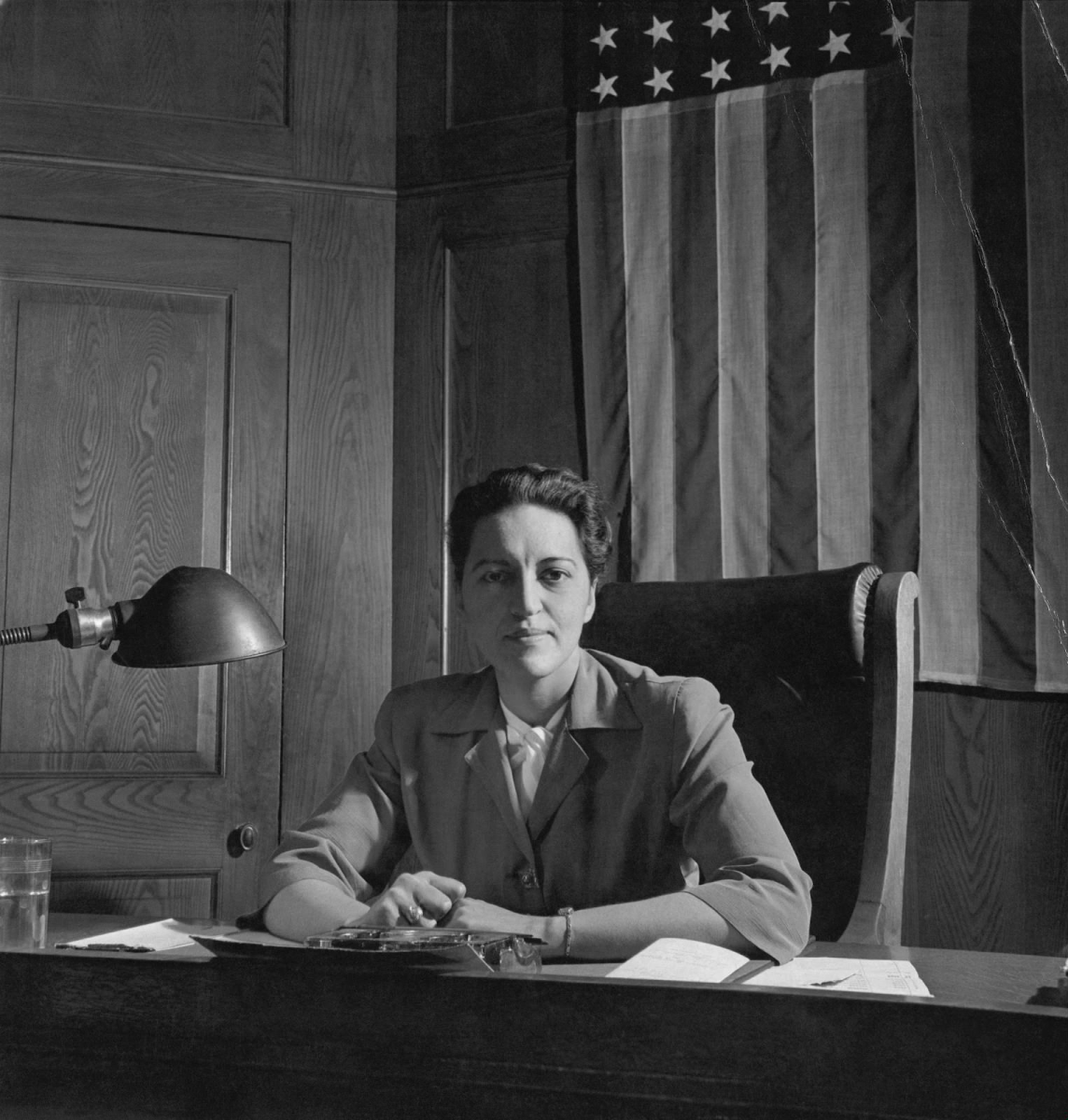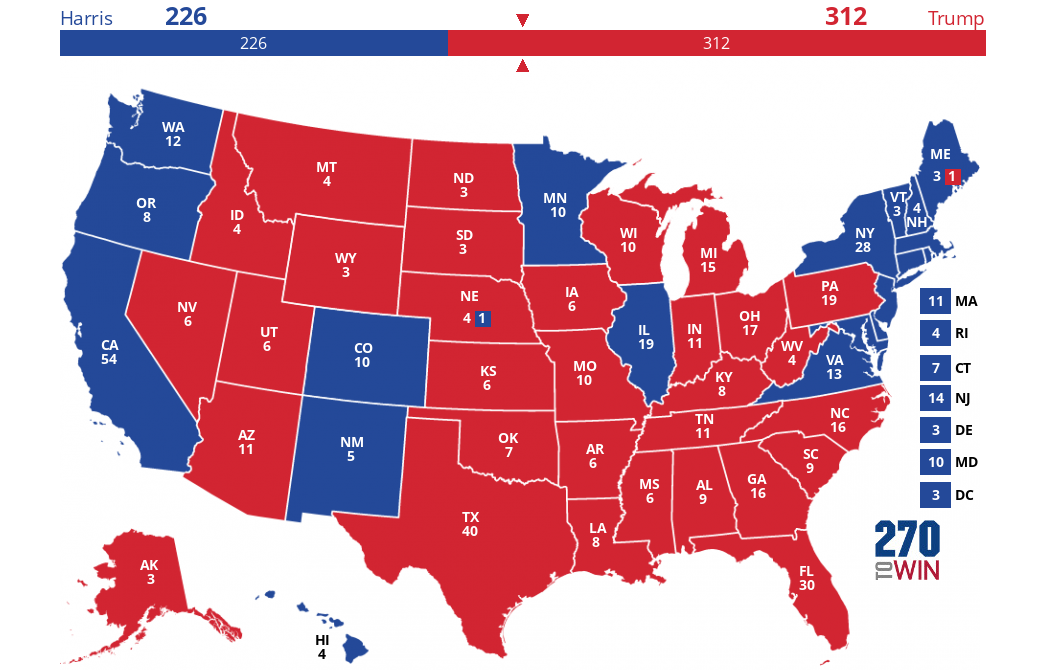Radnorite Editorial Board
Come November, America will choose more than a new president. It will choose a direction for our nation on key issues from immigration to gun control to climate change. On the Democratic side, Hillary Clinton has a vision to lead us in a direction where middle-class Americans can prosper, quality education and healthcare is affordable, and the country is kept safe. The former secretary of state has a great command of policy, as well as a pragmatic approach to carrying out goals. She brings assets to the table that are in short supply this primary season: namely, steadiness, competence, and experience. The breadth and depth of her qualifications are why the Radnorite Editorial Board endorses Hillary Clinton for the Democratic nomination.
Hillary’s record of achievement is extensive and storied. She attended Wellesley College and went on to earn a J.D. from Yale Law School. As First Lady of Arkansas, she led a task force that improved the state’s public school system. Hillary spearheaded healthcare reform efforts as First Lady in the White House that were eventually defeated in Congress. Working with Republicans and Democrats, she instead created the Children’s Health Insurance Program which now provides health coverage to over eight million children. She later served as a U.S. Senator from the state of New York for eight years, securing $20 billion from the Bush administration to rebuild NYC after 9/11. During her time as U.S. Secretary of State, Hillary traveled to 112 countries, more than any of her predecessors. She brokered a ceasefire between Israel and Hamas that ended a war and was a strong champion for women’s and human rights.
Hillary’s opposition—the self-proclaimed Democratic Socialist from the far-left—is no doubt an eloquent and talented politician. Bernie Sanders can articulate, in no uncertain terms, the nation’s anger over the damage that big banks created on our economy, as well as the egregiousness of income inequality. But while he’s effectively brought Occupy Wall Street to the ballot box, a candidacy rooted in anger is not enough. Anger is insufficient to inspire a majority of voters. It fails to make a case for the experience and capacity of a candidate to govern. Though we would be hard pressed to disagree with Bernie’s campaign goals, we are less confident in the political and financial feasibility of his radical policies. We remain skeptical of the “political revolution” that will somehow usher in the monumental changes that he advocates. Bernie’s limited power base and political alliances bring into question his ability to get his agenda past special interest groups and Congress. While his solutions to our nation’s problems have curb appeal, they may surely fail to make their way through what will likely be a Republican-controlled House.
On the other hand, Hillary Clinton has the temperament and the know-how to navigate the politics of a sharply divided nation to make incremental gains. The checks and balances system in our government tends to favor persistence, not revolutionary change. Hillary recognizes that after campaign rhetoric fades, real progress comes from politically pragmatic proposals and steady effort. Take healthcare, for instance, where she would build on the Affordable Care Act to expand affordable health care coverage and reduce out-of-pocket costs—not start over from scratch. The single-payer, Medicare-for-all health care system that Sanders proposes is unrealistic and prompts concerns over the cost and disruption that such an overhaul would entail.
While both candidates stand closely on many issues, they vary in their positions on gun control. With over 30,000 Americans killed by guns each year, Hillary supports sensible action to address gun violence. She proposes banning assault weapons, expanding background checks, closing legal loopholes, and repealing a law that protects gun manufacturers and dealers from lawsuits. In contrast, Bernie voted against the Brady Bill, which mandates criminal background checks to prevent dangerous people from purchasing guns. He also voted in support of the very law that Hillary is set out to repeal, one that prevents victims of gun violence from holding negligent manufacturers and dealers accountable. Bernie asserts that he stands against big business. But his vote to protect firearms corporations from legal liability tells a very different story.
As high school students, an issue that lies at the forefront of our minds is college affordability. On this concern, Bernie wants to make all public colleges tuition-free—a magnanimous plan, but likely unpalatable to Congress. His proposal faces the challenge of centralizing a higher education system that is generally run by state governments. It will also negatively impact private institutions as their would-be applicants gravitate towards public colleges. Alternatively, Hillary proposes no-loan tuition at four-year, in-state public colleges and free tuition at community colleges by providing federal grants to states. Unlike Bernie’s rather unfeasible plan for a completely free college education, Hillary’s plan would ask families to make a realistic contribution toward tuition costs, and students to contribute 10 hours of work per week. Future undergraduates like us would also benefit from dramatically lower interest rates, helping to alleviate any anxiety over large student debts.
Next January, our 45th president will take office and face complex problems that affect the lives of every American. Defeating terrorist groups will be one of the most imperative challenges. The stakes could not be higher. What America needs is strong, intelligent leadership like Hillary’s to win the fight against radical jihadist organizations. While Bernie feels that countering violent extremism “must be done primarily by Muslim nations,” Hillary advocates for a sustained commitment from the U.S. and broader international coalition efforts. She recognizes the importance of global alliances to prepare America for new, emerging threats—not only from terrorism, but from climate change, cyber attacks, and contagious diseases.
Still, like anyone else, Hillary Clinton has made a few mistakes in the past. As secretary of state, she could have done more to address the vacuum left by Libya’s Muammar el-Qaddafi. As a U.S. Senator, she could have voted against the war in Iraq. From Whitewater to Monica Lewinsky to the Benghazi attack, and most recently to her use of a private server for classified emails, Hillary is unquestionably a battle-tested candidate. She has proven time and again that she is able to take stock and recalibrate. She has the strength and resilience to learn and move on.
In the end, while Hillary is bidding to become the first woman nominated by a major political party for the presidency, that alone would not be a good enough reason to endorse her. The Radnorite Editorial Board supports Hillary because we believe that she is the stronger candidate to win the general election and better qualified to be our nation’s commander in chief. But in a world that has seen political leaders like Margaret Thatcher and Angela Merkel, the U.S. may, indeed, be past due for a female president. And Hillary Clinton is fit to be that president. The fact that she would make history would simply be an added bonus.
Categories:
Clinton is Best Choice for Next President
April 6, 2016







